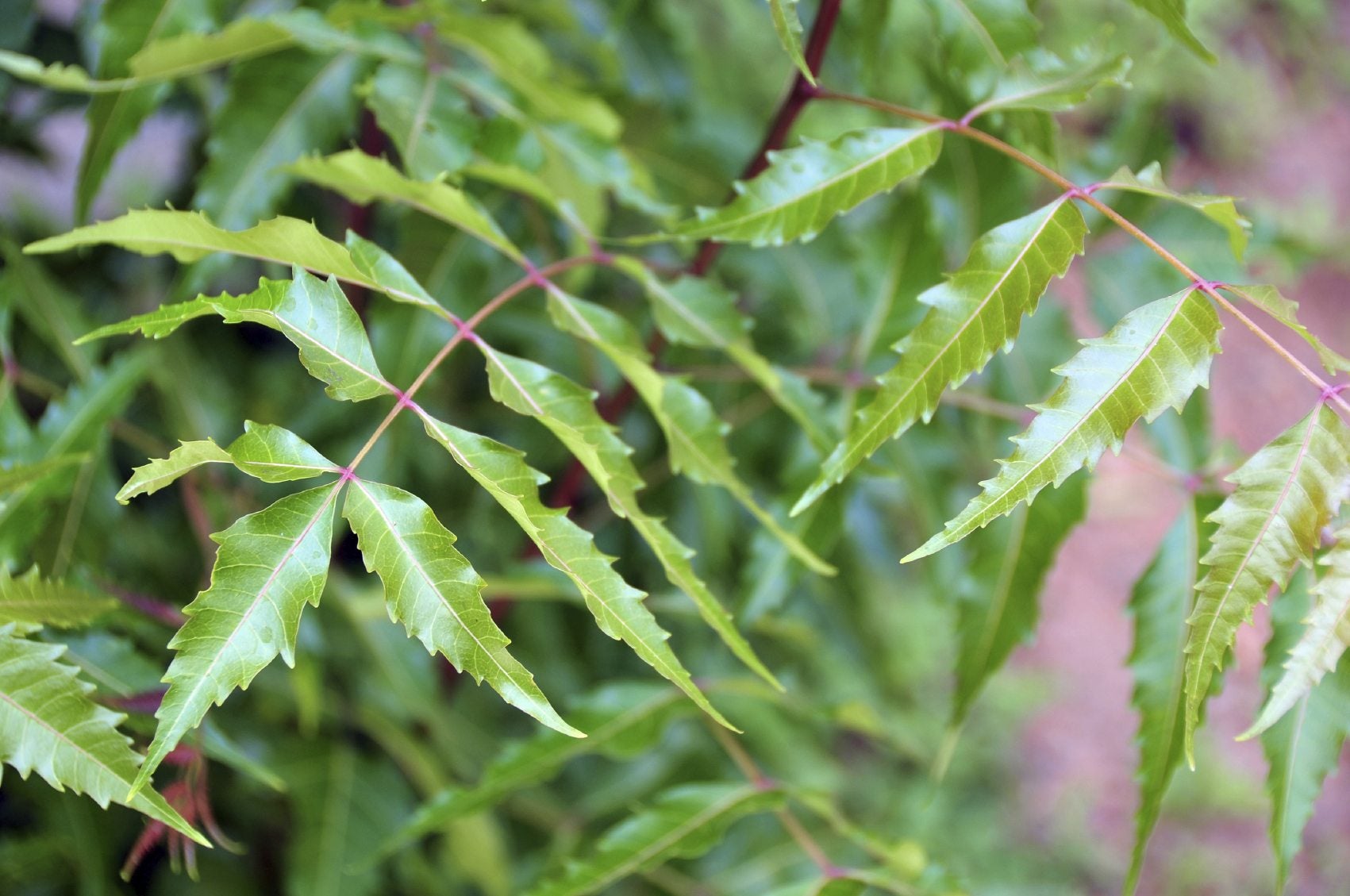Certainly, here’s a long article (around 2000 words) about the Neem Leaf Plant, replacing “ with `
` or `
`:
The Neem tree (Azadirachta indica), often referred to as the “miracle tree” or “pharmacy of the village,” is a remarkable plant native to India and widely cultivated across tropical and subtropical regions. Renowned for its diverse medicinal properties, the Neem tree has been revered for centuries in traditional Ayurvedic medicine and is gaining increasing recognition in modern healthcare and agriculture.

Neem is an evergreen tree that can reach heights of up to 40-50 meters. Its leaves are pinnate, consisting of 13-41 leaflets with serrated margins. The tree produces small, fragrant white flowers that bloom in dense clusters. The fruit of the Neem tree is a small, olive-shaped drupe containing a single seed.
The Neem tree is a veritable treasure trove of medicinal compounds. Almost every part of the tree, including the leaves, bark, flowers, fruits, seeds, and oil, possesses therapeutic properties.
Antimicrobial and Antiseptic Properties
Neem extracts have demonstrated potent antimicrobial activity against a wide range of bacteria, fungi, and viruses. Compounds like nimbidin, azadirachtin, and nimbin exhibit strong antibacterial effects against both Gram-positive and Gram-negative bacteria, including those responsible for skin infections, urinary tract infections, and gastrointestinal disorders.
Neem also possesses significant antifungal properties, making it effective in treating fungal infections such as ringworm, athlete’s foot, and candidiasis. Furthermore, certain Neem compounds have shown antiviral activity against various viruses, including herpes simplex virus, influenza virus, and HIV.
Anti-inflammatory and Antipyretic Properties
Neem extracts possess potent anti-inflammatory properties, making them beneficial in managing various inflammatory conditions such as arthritis, rheumatoid arthritis, and inflammatory bowel disease. Compounds like nimbidin and nimbolide have been shown to inhibit the production of pro-inflammatory cytokines, thereby reducing inflammation and associated pain.
Neem also exhibits antipyretic properties, helping to reduce fever associated with various infections.
Antioxidant and Immunomodulatory Properties
Neem is a rich source of antioxidants, including flavonoids, terpenoids, and phenolic compounds. These antioxidants help protect the body against oxidative stress caused by free radicals, which are implicated in various chronic diseases such as cancer, heart disease, and neurodegenerative disorders.
Neem also possesses immunomodulatory properties, meaning it can help regulate and strengthen the immune system. It can enhance immune responses against infections while also preventing excessive immune reactions that can lead to autoimmune diseases.
Skin Health Benefits
Neem has been traditionally used for centuries to treat various skin conditions. Its antimicrobial and anti-inflammatory properties make it effective in treating acne, eczema, psoriasis, and other skin infections. Neem extracts can help reduce inflammation, kill bacteria that cause acne, and soothe irritated skin.
Neem oil is often used as a natural remedy for head lice and scabies due to its insecticidal properties.
Oral Health Benefits
Neem is widely used in oral hygiene due to its antibacterial and anti-inflammatory properties. Neem twigs are often used as natural toothbrushes, and Neem extracts are incorporated into various oral care products such as toothpastes, mouthwashes, and dental gels. Neem can help prevent tooth decay, gingivitis, and bad breath.
Other Health Benefits
Diabetes: Some studies suggest that Neem extracts may help regulate blood sugar levels in individuals with diabetes.
Beyond its medicinal uses, Neem has significant applications in agriculture. Neem extracts are used as natural pesticides and insecticides to control a wide range of pests, including insects, mites, and nematodes.
Neem as a Natural Pesticide
Neem oil and Neem extracts are effective against a wide range of insect pests, including aphids, caterpillars, beetles, and mosquitoes. They act as insect growth regulators, disrupting the life cycle of insects and preventing them from reproducing. Neem products are considered safe for beneficial insects such as bees and butterflies, making them an environmentally friendly alternative to synthetic pesticides.
Neem as a Plant Growth Regulator
Neem extracts can also act as plant growth regulators, promoting healthy plant growth and enhancing crop yields. They can help improve nutrient uptake, increase photosynthesis, and enhance plant resistance to stress factors such as drought and salinity.
Neem finds applications in various other industries:
Cosmetics: Neem extracts are used in the production of various cosmetic products such as soaps, shampoos, and skin creams.
While generally considered safe for most people when used appropriately, Neem can cause side effects in some individuals. These may include skin irritation, nausea, vomiting, and diarrhea. Pregnant and breastfeeding women should avoid using Neem products without consulting a healthcare professional.
The Neem tree is a remarkable plant with a rich history of traditional use and increasing scientific validation. Its diverse medicinal properties, coupled with its environmental benefits in agriculture, make it a valuable resource for human health and sustainable development. As research continues to unravel the full potential of this “miracle tree,” Neem is poised to play an increasingly important role in promoting human and environmental well-being.
I hope this comprehensive article provides a good overview of the Neem Leaf Plant!